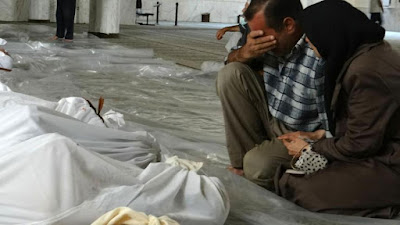Since the start of Israel’s most brutal war against Palestinians in the Gaza Strip (following the Hamas attack on Israeli soldiers and civilians on October 7, 2023), some media and governments have turned international and humanitarian law into a point of view or opinion expressed by non-specialists.
As a result, terms and concepts each
with a very specific meaning, such as war crimes or crimes against humanity
(including ethnic cleansing) or genocide, have become terms and concepts used
interchangeably to qualify certain conditions or, often, to deny the
“correctness” of these qualifications.
The following text recalls the
definitions of the crimes in question and examines to what extent they apply to
the Israeli war in the Gaza Strip.
Ziad Majed in Orient XXI
To read the article, please click here.













